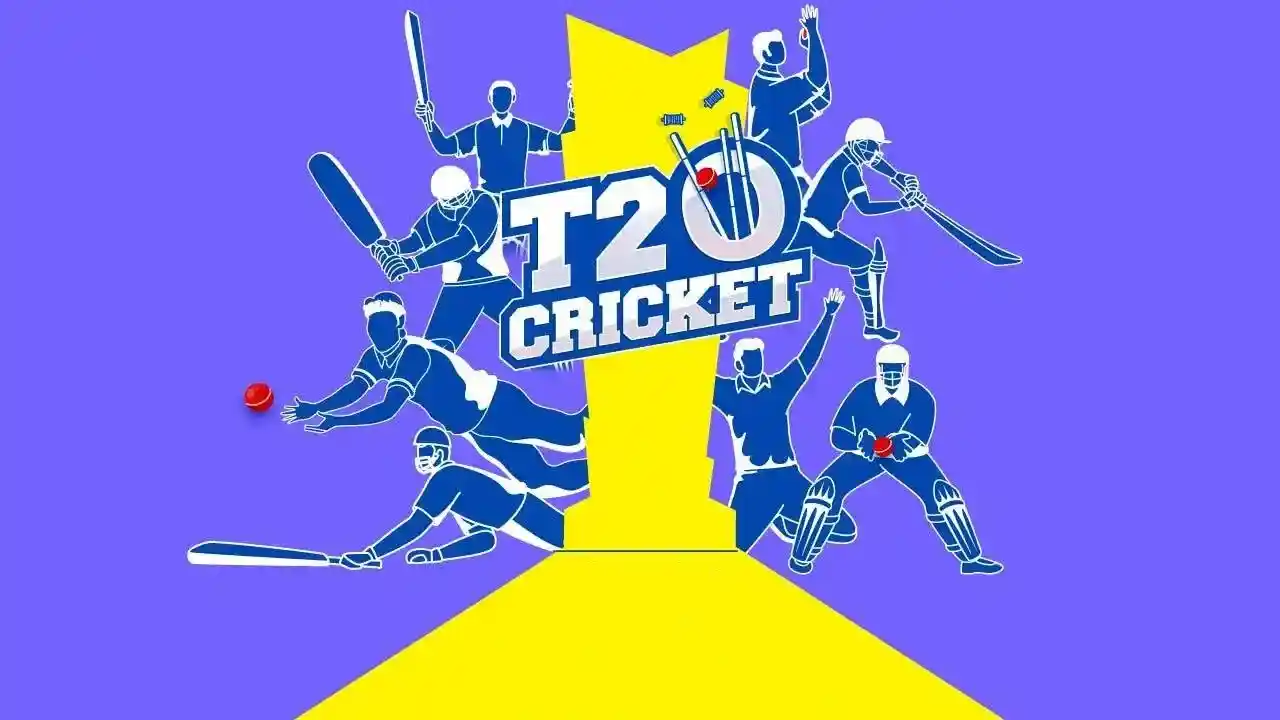Sports
The Rise of T20 Cricket and How It’s Changing Cricket Globally: Twenty20 Cricket Change in the Modern Era

Cricket has long been a game of tradition, defined by its long formats and strategic play. However, the introduction of T20 cricket has significantly altered the landscape of the sport. Since its inception in 2003, T20 cricket has revolutionized the game, making it faster, more exciting, and more accessible to a broader audience. This format has transformed not only the way cricket is played but also how it is perceived by fans, players, and broadcasters alike. In this article, join banger casino bonus and explore the rise of T20 and how it’s changing cricket on a global scale.
The Birth of T20 Cricket
The Concept Behind T20
T20 cricket was introduced to address the need for a shorter, more entertaining format that would appeal to a wider audience. Unlike the traditional Test matches, which can last up to five days, or One Day Internationals (ODIs), which require a full day, T20 matches are completed in approximately three hours. This shorter format was designed to make cricket more accessible, especially for those who do not have the time to watch longer games.
The First T20 Matches
The first official T20 match was played in 2003 between English county teams, and it quickly gained popularity among fans. The success of these early matches led to the organization of the first international T20 match in 2005, where Australia faced New Zealand. This match captured the imagination of fans, setting the stage for T20’s rapid rise in popularity around the world.
The Impact of T20 on Cricket Leagues
The Indian Premier League (IPL)
The launch of the Indian Premier League (IPL) in 2008 marked a turning point in the global popularity of T20 cricket. The IPL brought together the world’s best cricketers, creating a spectacle of talent, entertainment, and fierce competition. With franchise teams, celebrity endorsements, and massive sponsorship deals, the IPL became the face of T20 cricket, drawing in millions of viewers each season and making cricket a part of mainstream entertainment.
The Growth of Domestic T20 Leagues
Following the success of the IPL, other countries began launching their own domestic T20 leagues. Competitions such as the Big Bash League (BBL) in Australia, the Caribbean Premier League (CPL), and the Pakistan Super League (PSL) have become immensely popular, showcasing local talent and bringing international stars to the forefront. These leagues have made cricket more commercially viable and have provided players with greater opportunities to develop their skills in a competitive environment.
T20’s Influence on Players and Playing Styles
The Rise of Power Hitting
Power hitting has become a defining characteristic of T20 cricket. Players like Chris Gayle, Andre Russell, and AB de Villiers have become famous for their ability to hit massive sixes, thrilling crowds and changing the dynamics of the game. T20 has pushed batsmen to innovate, finding new ways to score quickly and put pressure on the opposition.
The Evolution of Bowling Strategies
While T20 cricket is often considered a batsman’s game, it has also led to significant changes in bowling strategies. Bowlers now focus on variation, using slower balls, yorkers, and bouncers to deceive batsmen and limit scoring. The format has produced bowlers like Jasprit Bumrah and Rashid Khan, who have mastered the art of bowling under pressure and adapting their skills to the fast-paced nature of T20 cricket.
Global Reach and Popularity
Attracting a New Generation of Fans
The fast-paced nature of T20 cricket has helped the sport attract a younger, more diverse audience. The shorter game duration, combined with the emphasis on entertainment, has made T20 matches more appealing to fans who might not have the patience for longer formats. The vibrant atmosphere, complete with music, cheerleaders, and fireworks, has turned T20 matches into full-fledged entertainment events, drawing fans from all walks of life.
Expanding Cricket Beyond Traditional Boundaries
T20 cricket has played a crucial role in expanding the sport beyond its traditional strongholds. Countries like Afghanistan, Nepal, and even the United States have embraced T20 cricket, with new teams and leagues emerging in non-traditional cricketing nations. The success of T20 has helped globalize the sport, bringing new fans and players into the fold and fostering a more diverse cricket community.
The Commercial Impact of T20 Cricket
Sponsorship and Broadcast Deals
The rise of T20 cricket has led to an influx of sponsorship and broadcast deals, making the sport more lucrative than ever before. Leagues like the IPL have attracted major brands and media companies, resulting in multi-million-dollar contracts that have elevated the financial status of the sport. The commercial success of T20 has had a positive impact on players, with many cricketers earning substantial incomes through league contracts, endorsements, and prize money.
The Role of Media and Social Platforms
Social media has played a significant role in the rise of T20 cricket. Platforms like Twitter, Instagram, and YouTube have provided fans with direct access to players, teams, and behind-the-scenes content. The engagement generated through these platforms has helped grow the fanbase and increased the visibility of the sport, making cricket more accessible and relatable to a global audience.
Challenges and Criticisms of T20 Cricket
The Threat to Traditional Formats
While T20 cricket has brought excitement and growth to the sport, it has also faced criticism for potentially undermining the traditional formats of the game. Test cricket, known for its strategy and endurance, has seen declining viewership in some regions, as fans gravitate toward the shorter and more entertaining T20 format. Critics argue that the emphasis on T20 cricket may result in a loss of appreciation for the skills and patience required in longer formats.
Player Fatigue and Workload Management
The growth of T20 leagues has also raised concerns about player fatigue and the challenges of managing workloads. With many players participating in multiple T20 leagues alongside international duties, there is a risk of burnout and injuries. Cricket boards and players have had to strike a balance between taking advantage of the lucrative opportunities presented by T20 and maintaining their fitness for longer formats.
The Future of T20 and Its Role in Cricket
T20 World Cup and International Competitions
The T20 World Cup has become one of the most anticipated events in the cricketing calendar, bringing together the best teams from around the world. The success of the T20 World Cup has highlighted the growing importance of the format at the international level and has provided a platform for emerging cricketing nations to compete on a global stage. The popularity of international T20 competitions is expected to continue growing, further solidifying T20’s place in the future of cricket.
Balancing Formats for the Growth of the Game
The challenge for cricket administrators will be to balance the growth of T20 cricket with the preservation of the traditional formats. While T20 has brought new fans and financial success, Test cricket and ODIs remain integral to the sport’s history and identity. Finding a way to promote all three formats and ensure their coexistence will be key to the continued growth and success of cricket globally.
Conclusion
The rise of T20 cricket has revolutionized the sport, making it more dynamic, accessible, and entertaining for fans around the world. From the launch of the IPL to the expansion of T20 leagues in non-traditional cricketing nations, the impact of T20 has been profound. While challenges remain in balancing the different formats and managing player workloads, there is no doubt that T20 cricket has played a crucial role in modernizing the game and expanding its global reach. As T20 continues to evolve, it will be exciting to see how it shapes the future of cricket and inspires the next generation of players and fans.
Sports
UFABET Agent Guide for Safe Betting and Financial Stability

In the world of online sports betting and casino games, choosing the right platform is essential to ensure a safe and secure betting experience. UFABET is one of the leading online betting sites in Thailand and across Southeast Asia, offering a wide range of sports betting options, casino games, and live dealer experiences. However, for users to maximize their experience on the site while ensuring their financial stability, it is crucial to understand the role of a UFABET agent. This guide will walk you through everything you need to know about UFABET agents, how they contribute to a safe betting experience, and how to maintain financial stability while betting.
What is a UFABET Agent?
A UFABET agent acts as an intermediary between the platform and the users. The agent provides several services to players, such as account creation, deposits, withdrawals, customer support, and sometimes even providing exclusive bonuses and promotions. They work to ensure that users have seamless access to all of UFABET’s offerings, whether it be sports betting or online casino games.
There are many benefits to working with an agent, especially if you’re new to the betting world or unfamiliar with the intricacies of online sports betting. An agent can guide you through the platform’s features, help with troubleshooting any issues, and ensure your funds are handled responsibly.
Why Should You Use a UFABET Agent?
1. Safety and Security
One of the primary concerns for any online bettor is the safety and security of their personal and financial information. ตัวแทน ufabet are usually vetted and work with the official UFABET platform to ensure that all transactions are secure. They follow strict protocols to prevent fraud and ensure that deposits and withdrawals are processed efficiently.
Moreover, agents are well-versed in the various scams and risks associated with online betting. They can help protect you from malicious websites or suspicious activities by offering advice and guidance on how to stay safe while gambling online.
2. Expert Assistance
Experienced UFABET agents have a deep understanding of the betting platform, its terms, and conditions. This can be immensely beneficial for new players who might find the platform overwhelming. An agent can help you navigate the different betting options, explain the odds, and offer tips on making informed bets. Additionally, agents often provide access to exclusive promotions or bonuses that can give you a head start.
3. Faster Transactions
Having a dedicated agent can help you with faster transactions. For example, withdrawals may be expedited when handled by an experienced agent, ensuring that you receive your winnings without unnecessary delays. Agents can also help you avoid potential errors when making deposits or cashing out, which can save you time and stress.
4. Access to Bonuses and Promotions
Many UFABET agents have special relationships with the platform and may offer exclusive bonuses, promotions, and betting opportunities that are not readily available to all users. Whether it’s a bonus for new members, free bets, or special deals for long-term customers, an agent can help you take advantage of these opportunities, ensuring that you get the most out of your betting experience.
Maintaining Financial Stability with UFABET
While betting can be fun and potentially lucrative, it is also important to approach it with a responsible mindset, especially when it comes to managing your finances. Below are some essential tips for maintaining financial stability while using UFABET:
1. Set a Budget
Before you start betting, it’s essential to set a budget. Decide how much money you’re willing to invest and stick to it. Betting can be unpredictable, and it’s easy to get caught up in the excitement and overspend. By setting a budget, you can prevent yourself from placing bets beyond your means.
Agents can help by offering guidance on how to manage your bankroll, ensuring that you don’t wager more than you can afford to lose.
2. Bet Responsibly
Betting should be a form of entertainment, not a way to make quick money. Always bet responsibly and never chase losses. If you find that you’re losing more than expected, take a break and reassess your strategy. An agent can help you track your bets and offer advice on how to pace your betting activity.
3. Utilize Payment Methods Wisely
UFABET offers various payment methods for deposits and withdrawals. It’s important to choose a payment method that is both convenient and secure. UFABET agents can assist you in selecting the best options, ensuring that your funds are handled safely and with minimal fees.
Moreover, some payment methods may allow for quicker withdrawals or more convenient access to your funds, which can contribute to better financial management.
4. Take Advantage of Free Betting Tips and Resources
Many UFABET agents offer free betting tips, tutorials, and guides to help players make informed decisions. These resources can be crucial in minimizing risk and ensuring that you are betting with knowledge rather than on impulse. By following expert tips and taking the time to learn about the different sports and games you’re betting on, you can increase your chances of making profitable decisions.
Final Thoughts
The key to a successful and sustainable betting experience with UFABET is choosing the right agent and managing your finances responsibly. A trusted UFABET agent can provide invaluable assistance in navigating the platform, ensuring that your betting is safe, secure, and enjoyable. By setting a budget, betting responsibly, and using the right financial tools, you can make the most of your time on UFABET while maintaining financial stability. Whether you’re a seasoned bettor or a beginner, working with a UFABET agent can elevate your betting experience while protecting your finances.
In conclusion, always remember that betting is a form of entertainment and should be approached with caution. By following these guidelines and using a reputable UFABET agent, you can enjoy a safe, fun, and financially responsible betting experience.
Sports
Why Volleyball is Gaining Massive Popularity in the Philippines

Volleyball has seen a remarkable rise in popularity in the Philippines over the past decade. Once considered a secondary sport to basketball, it has now captured the hearts of many Filipinos, especially the younger generation. From collegiate leagues to professional tournaments, volleyball has grown into a widely followed sport, with fans passionately supporting their favorite teams and players. But what factors contribute to this increasing popularity? Let’s explore the reasons behind volleyball’s growing presence in the Philippine sports scene.
1. Strong Collegiate Leagues
The University Athletic Association of the Philippines (UAAP) and the National Collegiate Athletic Association (NCAA) have played a significant role in the rise of volleyball. The fierce competition among schools and universities, along with the growing exposure through televised broadcasts and social media, has fueled the sport’s popularity. Star players from these leagues often become household names, drawing even more attention to the sport.
2. Professional Leagues and Local Teams
With the establishment of professional leagues such as the Premier Volleyball League (PVL) and the Philippine National Volleyball Federation (PNVF) tournaments, volleyball has reached a wider audience. These leagues provide a platform for collegiate stars to continue their careers while attracting international players, further raising the sport’s level of competition and entertainment value.
3. Strong Female Representation
Unlike basketball, where male players often dominate the spotlight, volleyball is unique because it highlights both men’s and women’s teams. Women’s volleyball, in particular, has gained a huge following in the country, with players like Alyssa Valdez, Jia Morado, and Jaja Santiago becoming sports icons. Their influence has inspired many young girls to take up the sport and aspire to become professional athletes.
4. Accessibility and Community Engagement
One of the biggest reasons for volleyball’s popularity is its accessibility. Unlike basketball, which requires a hoop and a court, volleyball can be played almost anywhere with minimal equipment—whether in schools, barangays, or beaches. The sport fosters camaraderie and teamwork, making it an attractive recreational activity for Filipinos of all ages.
5. Media Coverage and Social Media Influence
Television networks and online streaming platforms have significantly contributed to volleyball’s rising popularity. Regular broadcasts of collegiate and professional leagues keep fans engaged, while social media platforms amplify the hype with highlights, interviews, and fan discussions. Players also interact with their supporters online, strengthening their fan base and creating a deeper connection between athletes and spectators.
6. International Success and Representation
The performance of Filipino volleyball players in international competitions has also sparked interest in the sport. With local athletes playing in international leagues, such as Jaja Santiago in Japan, Filipino volleyball is gaining global recognition. The participation of the national team in events like the Southeast Asian (SEA) Games also boosts national pride and encourages more people to follow and support the sport.
Conclusion
Volleyball’s growing popularity in the Philippines is a testament to its accessibility, representation, and exciting gameplay. With strong collegiate programs, professional leagues, and international recognition, the sport continues to thrive and inspire the next generation of Filipino athletes. As volleyball gains more support and exposure, it is poised to become one of the country’s top sports alongside basketball and boxing.
Play and Win with GameZone!
If you love the excitement of sports, why not experience the thrill of winning on GameZone? Whether you’re a fan of competitive gaming or just looking for a fun way to pass the time, GameZone offers a variety of exciting games, including Tongits, Pusoy, and other popular card games. Join now and challenge your skills against other players while enjoying exciting rewards. Play today and be part of the GameZone community!
Sports
The Benefits Of After-School Sports For Australian Kids In 2025 & Beyond
As a parent here in Australia, it is your job to make sure that your children are fit and healthy so that they can go on to lead productive lives. The incidence of child obesity is on the rise here in Australia and that’s very bad news indeed. There are so many different activities for young kids to get involved in and some include Australian football, volleyball, soccer and of course basketball.
When learning the game of basketball, there are basketball drills for 8 year olds and upwards that get them moving and get their hearts pumping. It is a game that requires great skills and it brings lots of children together in one place. If you are not sure if after-school sports are for your kid, then the following are some of the benefits that they provide.
- Improved fitness levels – Young kids in Australia nowadays don’t move around enough and I suppose we have the modern digital age to blame for that. Children would rather play on their various devices than go outside to get some essential sunshine and fresh air. After-school activities get them moving like never before which is good for their physical health.
- Improved mental health – Believe it or not, many young children as young as eight years old are under a tremendous amount of pressure to want to do well in school and to mix well with their peers. This is pressure that no young mind should have and so playing after-school sports allows them to improve upon their self-esteem and confidence.
- They can make new friends – As was touched on briefly before, many young kids don’t spend enough time trying to make new friends and this affects them later in their adult lives. Taking part in sports allows them to build their social skills and they learn about things like teamwork, competition and how to be a good sportsperson. These are essential life skills that all children should have.
The other good news is that there have been many studies carried out indicating that children who take part in sports do better in their studies and this is good news for both parents and kids alike. There is no better time like the present to introduce your young child to competitive sports so that they can be stronger emotionally, physically and be much better productive members of Australian society.
-

 Travel1 year ago
Travel1 year agoOnboardicafe.com Login Exploring the Delights of Onboardicafe
-

 Food & Recipes12 months ago
Food & Recipes12 months agoFive Food Products You Must Avoid Giving to Your Infant
-

 Sports1 year ago
Sports1 year agoThe Most Popular Sports In The World
-

 Health & Fitness11 months ago
Health & Fitness11 months agoSuboxone Tooth Decay Lawsuits and the Pursuit of Justice Against Indivior
-

 Sports10 months ago
Sports10 months agoSmart Solutions for Football Field Maintenance
-

 Technology5 months ago
Technology5 months agoSustainable Practices in Video Production: Reducing the Carbon Footprint
-

 Entertainment1 year ago
Entertainment1 year agoNavigating the Web: The Ultimate List of Tamilrockers Proxy Alternatives
-

 Sports9 months ago
Sports9 months agoWearable Tech and the Future of Football










